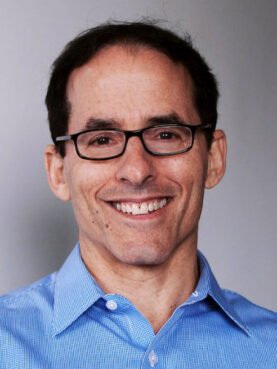VATICAN CITY (RNS) — Some of the most provocative recent proposals challenging global inequality and international debt are not the work of Ivy League economics departments or Silicon Valley think tanks. They’re coming from inside the Vatican.
“I don’t know of another place that brings together this kind of serious economic analysis with equally serious moral values,” said economist Mark Weisbrot, co-director of the Center for Economic and Policy Research and a contributor to the Vatican’s Jubilee Report, which calls for sweeping reform of sovereign debt and global finance. “You just don’t get that in Washington.”
That vision was on display Monday (June 30) at the United Nations’ 4th International Conference on Financing for Development in Seville, Spain. A panel organized by the Holy See and Caritas Internationalis, the church’s global aid network, pressed leaders at the conference to address a debt crisis that has pushed dozens of countries into poverty and austerity.
“It is both alarming and clear that developing countries are increasingly being forced to make impossible choices between servicing debt and serving their people,” said Archbishop Gabriele Caccia, the Vatican’s permanent observer to the U.N. “In this Jubilee year, the church urges us to be bold in our efforts in addressing these injustices.”
Developing nations now hold about a third of the global public debt, which exceeded $102 trillion in 2024, according to the U.N. Trade and Development organization, known as UNCTAD, and they paid $921 billion in net interest that year. According to UNCTAD, roughly 3.4 billion people live in countries that spend more to repay debt than for health and education services that could improve the lives of its citizens.
Caritas Secretary General Alistair Dutton called the debt crisis “the least painful” problem in global financing to fix — all that was needed, he said, was the political will. Dutton called for a system that brings creditors to the negotiating table to restructure debt and urged international financial institutions to work together to create a more sustainable framework for debt.
The push is part of the Vatican’s Jubilee year, a designation with roots in the Hebrew Bible’s Book of Leviticus and declared by Pope Francis before his death. The biblical jubilee called for the elimination of debts, the liberation of slaves and redistribution of land every 50 years. Francis invoked this same tradition by urging world leaders to cancel the debts of nations faced with this “unbearable burden.”
That vision inspired the Jubilee Report, a sweeping policy document presented by the Vatican’s Academy of Social Sciences and co-authored by leading economists, such as Nobel laureate Joseph Stiglitz, former Argentine Finance Minister Martín Guzmán and Weisbrot.
Approved by Pope Leo XIV and released days before the Seville conference, the report calls for a new global economic architecture, including a sovereign bankruptcy process, broader debt relief and legal reforms to rein in predatory lending.
It also advocates for the expansion of Special Drawing Rights, a type of asset issued by the International Monetary Fund that countries can use in emergencies to stabilize their economies. Unlike traditional loans, SDRs don’t come with interest or policy conditions. In 2021, amid the COVID-19 pandemic, the IMF issued $650 billion in SDRs — $200 billion of which went to developing countries. “It was a real change,” Weisbrot said, noting that some economists now believe it should happen annually.

Mark Weisbrot. (Courtesy photo)
Francis often criticized what he called “ideological colonization,” meaning the practice of attaching social or economic conditions to foreign aid and loans, often imposed by wealthy nations or international institutions. Nowhere is that more evident, Weisbrot said, than in the case of Francis’ native Argentina.
In 2018, the IMF approved its largest traditional loan ever — $57 billion — to support the government of then-President Mauricio Macri. “It was politically motivated, economically disastrous and socially devastating,” Weisbrot said. The loan came with strict austerity conditions that triggered inflation, capital flight and a deeper crisis.
“It didn’t stabilize the economy. It made everything worse,” he said.
For Weisbrot, the root problem isn’t just bad economics, but a global financial system that lacks accountability and serves the interests of a few. “The IMF is the most powerful financial institution in the world,” he said. “And the U.S. Treasury has the power of God over a huge part of the world.” The U.S. government has veto power in the IMF’s decision-making body, which, according to Weisbrot, it uses in coordination with other wealthy nations “to shape the global economy in their own image.”
Pope Leo XIV seems prepared to follow Francis in challenging the status quo and calling out the injustices embedded in the global economic system. “I think there’s real continuity,” said Weisbrot.
“This conference is an example,” he added. “And the Jubilee Report — it really does endorse most of the analysis and reforms Pope Francis pushed for. It looks like the new pope is supportive of that agenda on these crucial, life-and-death issues.”
While the Vatican may not have the power to restructure the global economy, it still holds a seat at the table in the world’s most influential rooms. And in an era when those rooms often exclude dissenting voices, the Catholic Church remains one of the few places where economists, intellectuals and activists can make bold, disruptive proposals — and be taken seriously.







